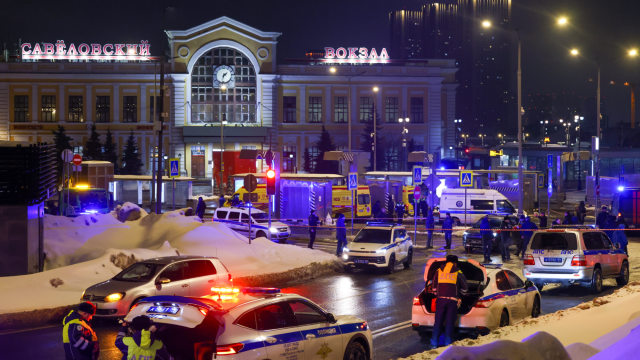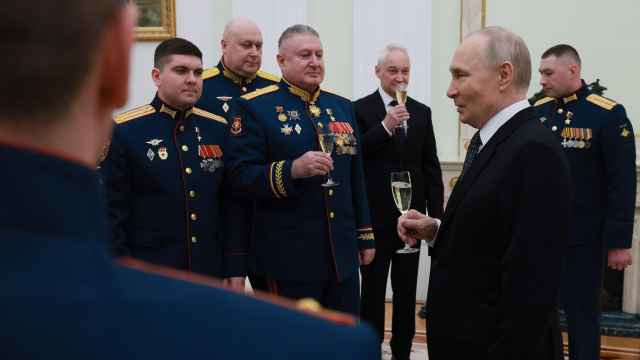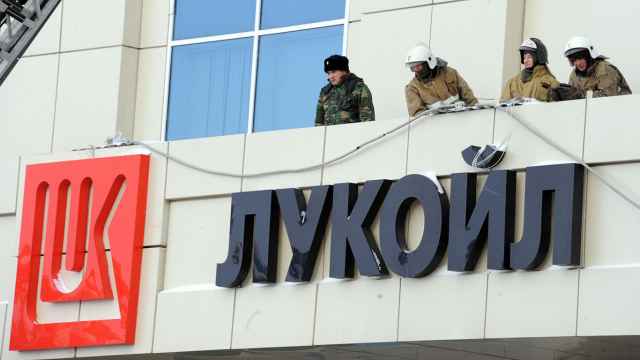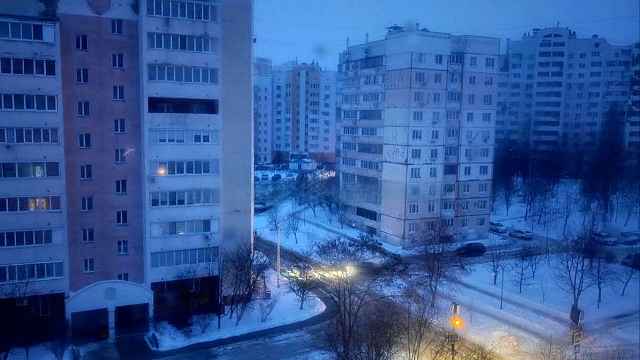Nikolai Kholodov has been driving his truck along the highway from St. Petersburg to Moscow for two decades. This week, he’ll finally be able to make the trip without worrying about diversions, traffic jams and animals running onto the road.
After eight years of construction, a 669-kilometer toll highway as wide as 10 lanes in places is due to be completed between Russia’s two biggest cities. It’s replacing the old four-lane road that drivers have used for generations. The new route was meant to be fully operational in time for Russia to host the soccer World Cup in mid-2018, but funding was directed toward projects deemed more strategic by the Kremlin.
“We’ve been waiting for this road for a long time,” said Kholodov, 51, by phone from St. Petersburg, where he runs a small transportation company. “It’s a shame they didn’t manage it by 2018.”
Keen to show he is succeeding in a pledge to improve living standards as his popularity ratings slip, President Vladimir Putin will personally open the final section of highway in St. Petersburg on Wednesday. But the road’s tangled history highlights the challenges he faces in his efforts to expand infrastructure in the world’s biggest country.
Russia only has about 1.2 million kilometers of paved road and new construction has all but ground to a halt since international sanctions and plunging oil prices devalued the ruble in 2014, according to the Federal Statistics Service. Just over 5,200 kilometers of Russia’s road network can be considered high quality, roughly what China builds in one year, according to Mikhail Blinkin, director of the Institute of Transport Economics at Moscow’s Higher School of Economics.
The Kremlin has earmarked about $400 billion for a five-year infrastructure program that kicked off in 2018. But investment has been slow to start amid caution from officials about how to spend the money. The plan allocates about $78 billion toward expanding and upgrading Russia’s network of high-quality roads by 50% by the end of 2024, according to a blueprint published earlier this year.
“More than a year has passed and the authorities still haven’t even been able to publish a full list of the infrastructure projects they will work on,” said Natalia Zubarevich, head of regional studies at Moscow’s Independent Institute for Social Policy. “In Russia, only projects that have a geopolitical priority are built quickly.”
Road construction is too low on the Kremlin’s priority list for the project to be implemented properly, said Zubarevich. Officials will continue to pump money instead into more geopolitically strategic sectors such as development of the Arctic, she said.
Kholodov has switched to sections of the new highway as they were constructed in a bid to cut down his journey time between the two cities. That strategy hasn’t been without its obstacles though, as the road operator initially set toll prices so high that traffic was sparse on the first completed section of road.
Tolls for using the road, which has cost more than 500 billion rubles to build, vary according to the vehicle size and time of day, though they can reach as high as 2,020 rubles ($32) one-way.
The journey time between the two cities is expected to reduce to under six hours from as much as nine previously. Kholodov says things have slowly improved on the route, particularly because it bypasses a spot drivers jokingly dubbed “the most important traffic light in Russia” when vehicles would back up on the old road about midway through the trip.
“You could be stuck there for an hour and half — and that was if you were lucky,” Kholodov said. “Now that people are driving on the new road, they’ve forgotten about that traffic light like it was a bad dream.”
A Message from The Moscow Times:
Dear readers,
We are facing unprecedented challenges. Russia's Prosecutor General's Office has designated The Moscow Times as an "undesirable" organization, criminalizing our work and putting our staff at risk of prosecution. This follows our earlier unjust labeling as a "foreign agent."
These actions are direct attempts to silence independent journalism in Russia. The authorities claim our work "discredits the decisions of the Russian leadership." We see things differently: we strive to provide accurate, unbiased reporting on Russia.
We, the journalists of The Moscow Times, refuse to be silenced. But to continue our work, we need your help.
Your support, no matter how small, makes a world of difference. If you can, please support us monthly starting from just $2. It's quick to set up, and every contribution makes a significant impact.
By supporting The Moscow Times, you're defending open, independent journalism in the face of repression. Thank you for standing with us.
Remind me later.






